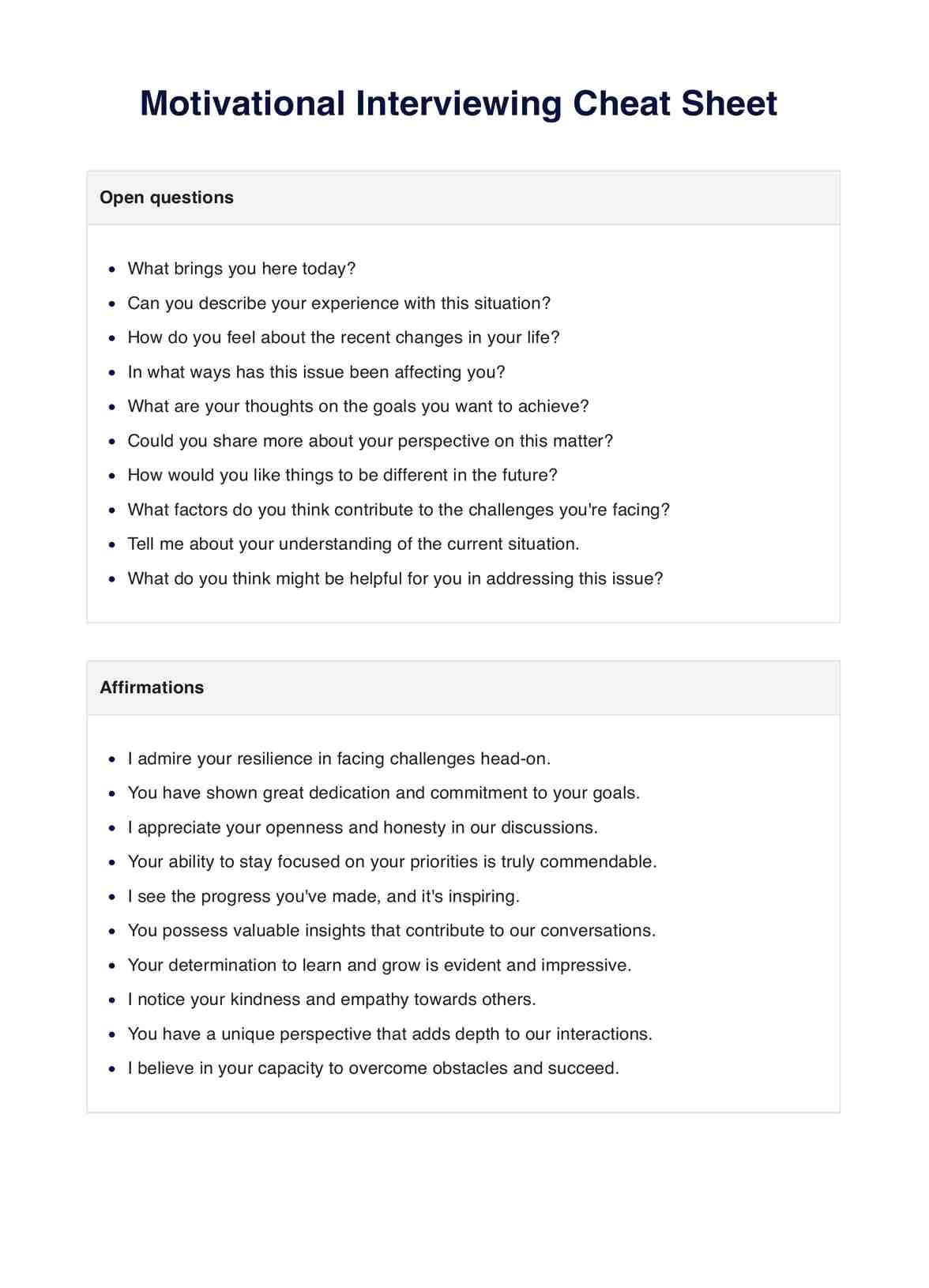Motivational interviewing principles include empathy, developing discrepancy, rolling with resistance, and supporting self-efficacy. Practitioners use OARS (open-ended questions, affirmations, reflective listening, and summarizing) to create a collaborative, non-judgmental environment.

Motivational Interviewing Cheat Sheet
Click here to learn more about motivational interviewing and the cheat sheet for mental health professionals to utilize during their sessions.
Use Template
Motivational Interviewing Cheat Sheet Template
Commonly asked questions
Anyone who is practicing motivational interviewing. This may be healthcare practitioners, mental health workers, organizational psychologists, and teachers.
This cheat sheet is designed for quick reference. If you have any other questions you would like to include, you can utilize our template and create your cheat sheet!
EHR and practice management software
Get started for free
*No credit card required
Free
$0/usd
Unlimited clients
Telehealth
1GB of storage
Client portal text
Automated billing and online payments











